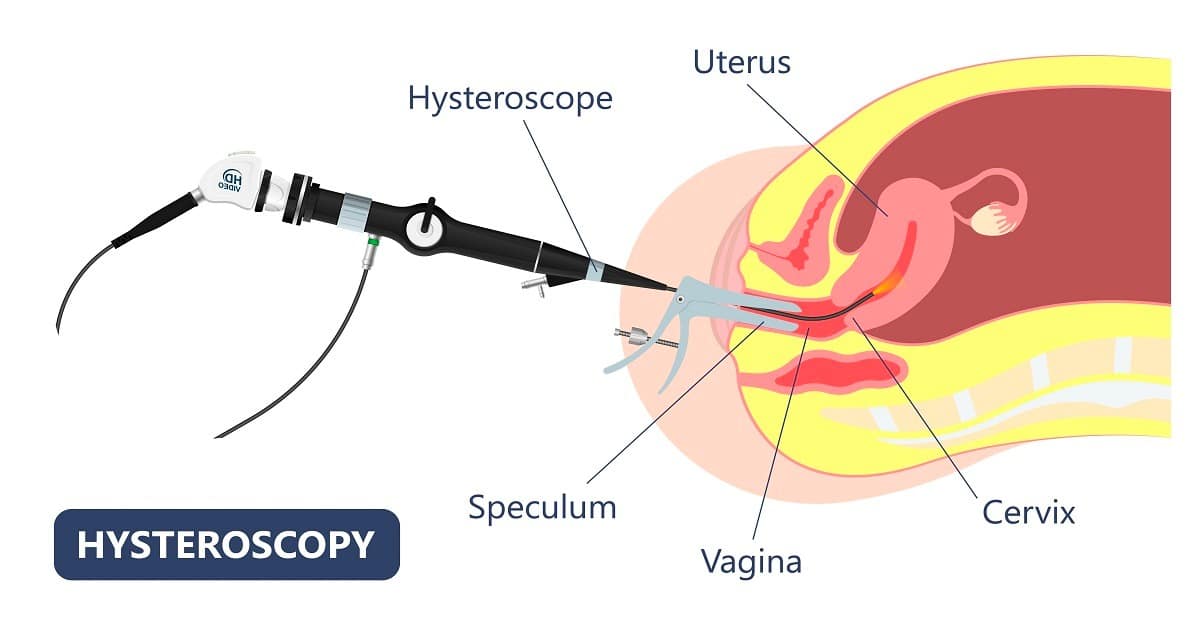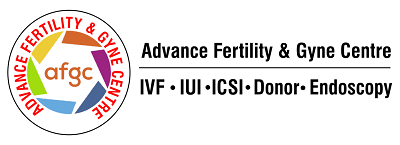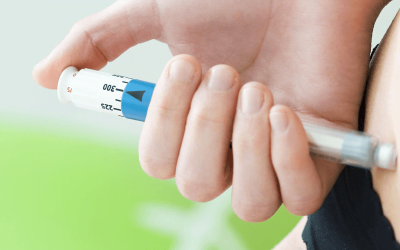Hysteroscopy

Hysteroscopy IVF Treatment in Delhi
What is hysteroscopy in IVF?
Hysteroscopy is an endoscopy day care procedure to examine the uterine cavity from inside. A thin lighted instrument with camera is inserted inside the uterine cavity to diagnose any problems like polyp, fibroid, adhesions, septum, any issue in cavity shape or size and to treat it in the same sitting. It will be done under short general anesthesia.
When is hysteroscopy done in IVF?
Hysteroscopy in IVF is a process done before starting IVF especially if there are suggestions of fibroids, polyps, uterine defects and adhesions. It is definitely suggested after a Failed IVF attempt.
How does hysteroscopy help?
- It is done to identify the presence of polyp, fibroid, septum, and adhesions
- The uterus is cleaned with an antibiotic solution and a tissue is taken and send for infection testing
- Polyps or fibroid are removed , septal resection, cutting of adhesions and tubal cannulation can also be done at the same sitting
What precautions need to be taken before hysteroscopy?
- Require basic blood investigations
- Can visit during both pre or post menstrual
- Do a UPT if pre- menstrual
- Need to come for the procedure only when fasting for 6 to 8 hours
How is hysteroscopy done?
- Done under short general anesthesia
- Procedure time – 15 to 20 min (Diagnostic) and 30 to 45 min (Operative)
- Insertion of hysteroscope through vagina and cervix into the uterine cavity
- Infusion of normal saline fluid to expand the uterine cavity for better visuaslization
- Monitoring of procedure using a camera attached to the hysteroscope
- Inspection of ostia (opening of fallopian tube in uterus), uterine cavity, endocervical canal
- Performing the operative procedure if required in the same sitting
What are the instructions after hysteroscopy?
- Day care procedure –Discharged after 2 to 3 hours of procedure
- Eat light food post procedure on same day
- May observe mild abdominal cramping, mild bleeding and urinary discomfort on same day
What are advantages of hysteroscopy?
- Excellent assessment of the uterine cavity
- Enhanced fertility
- Faster recovery
- Shorter hospital stay
- No stitches
- Can resume normal activities from next day
Procedure
Here’s what you can expect during a hysteroscopy in IVF
- The doctor will ask you to empty your bladder and wear a hospital gown.
- A sedative or anaesthetic will be provided to help you relax.
- You will lay on an examination table while your legs are secured in stirrups.
- A surgeon will do a pelvic exam and dilate the cervix to prepare it for the hysteroscope.
- A hysteroscope will be introduced through the vagina and cervix until it reaches your uterus.
- A liquid solution is sent through the hysteroscope to help clear any mucus or blood from the uterus. This way, the doctor can easily see what’s inside.
- The surgeon will look into the uterine cavity and the fallopian tube openings.
- If surgery is necessary, the surgeon will insert surgical instruments through the scope to eliminate any abnormalities.
- The total length of time it takes to finish the procedure depends on whether it’s operative, diagnostic, or IVF treatment. It can take as little as 5 minutes or over an hour.
Success rates
The effectiveness of hysteroscopy in IVF is influenced by several factors. Typically, patients undergoing their first IVF treatment—especially those with known or suspected issues from previous pregnancies—have a higher success rate.
Furthermore, we have successfully managed cases involving complex polyps and fibroids. By treating these conditions with hysteroscopy, we’ve significantly enhanced the likelihood of a successful IVF cycle for these patients.
Types of Hysteroscopy
Hysteroscopy procedures are generally categorised into two types:
- Diagnostic hysteroscopy
A hysteroscopy can help doctors diagnose women with abnormal bleeding, uterine polyps or fibroids, endometrial cancer, and other similar issues. In addition, we may perform other diagnostic tests like an ultrasound to confirm certain findings.
- Operative hysteroscopy
Operative hysteroscopy is performed as a minor surgical intervention to treat underlying issues. Sometimes, it can be performed with a diagnostic hysteroscopy to save time. The procedure can be used for hysteroscopic polypectomy, myomectomy, adhesiolysis, septoplasty, and endometrial ablation.
Hysteroscopy can also be performed to optimise IVF success rates. At Advance Fertility and Gyne Centre, we use this modality to identify anything that may be interfering with successful embryo implantation. Here’s how hysteroscopy contributes to IVF success:
- It helps in identifying uterine abnormalities such as adhesions, polyps, or fibroids within the uterine cavity. These conditions can obstruct embryo implantation and adversely affect the success rates of IVF procedures.
- Hysteroscopy allows for a thorough examination of the embryo’s placement and the state of the uterine lining. By assessing these factors, we can better ascertain if the uterine conditions are favourable for implantation, thereby enhancing the likelihood of a successful IVF outcome.
Ensuring good uterine health
Proper care of the uterine cavity is essential for maintaining women’s reproductive health and overall well-being. Here are some key considerations for ensuring the health of the uterine cavity:
Regular Check-ups: Schedule routine gynecological exams to monitor the health of your uterus. These exams may include pelvic exams, Pap smears, and ultrasounds to detect any abnormalities.
Maintain a Healthy Lifestyle: A balanced diet, regular exercise, and a healthy body weight can help reduce the risk of conditions like polycystic ovarian syndrome (PCOS) and endometriosis, which can affect the uterine cavity.
Practice Safe Sex: Protect yourself from sexually transmitted infections (STIs) by practising safe sex. Untreated STIs can lead to pelvic inflammatory disease (PID), which can damage the uterine cavity.
Birth Control: Choose appropriate birth control methods to prevent unintended pregnancies. Consult with a healthcare provider to discuss your options.
Manage Chronic Conditions: If you have chronic conditions like diabetes or hypertension, managing them effectively can help protect your uterine health.
Stay Hydrated: Drinking enough water is important for overall health, including the uterine cavity.
Healthy Menstrual Practices: Use sanitary products like tampons and pads correctly. Change them regularly to prevent infections like toxic shock syndrome.
Stress management: Chronic stress can affect your menstrual cycle and overall health. Practice stress-reduction techniques like meditation and exercise.
Fertility Awareness: If you plan to conceive, track your menstrual cycle and monitor ovulation to optimise your chances of conception.
Hysteroscopy at Advance Fertility plays a crucial role in IVF by allowing direct visualization of the uterine cavity. This minimally invasive procedure assists in locating and addressing any anomalies, such as fibroids, polyps, or uterine septum, that may affect the outcome of in vitro fertilization.
Hysteroscopy during an IVF cycle at Advance Fertility involves the insertion of a thin, flexible tube with a camera (hysteroscope) through the cervix into the uterus. This enables the uterine cavity to be seen in real time, and if necessary, corrective actions can be performed at the same time.
Yes, hysteroscopy can improve the chances of success in IVF. A successful IVF cycle is more likely when uterine abnormalities are identified and addressed, as this optimizes the uterine environment for embryo implantation.
In IVF, hysteroscopy can identify and treat a range of uterine anomalies, such as adhesions, fibroids, polyps, and the uterine septum. Resolving these problems improves the uterus’s prepared for implantation state.
Hysteroscopy is often recommended as a routine procedure before IVF. In order to identify and prevent any potential barriers to successful IVF, it enables a comprehensive evaluation of the uterine cavity.






